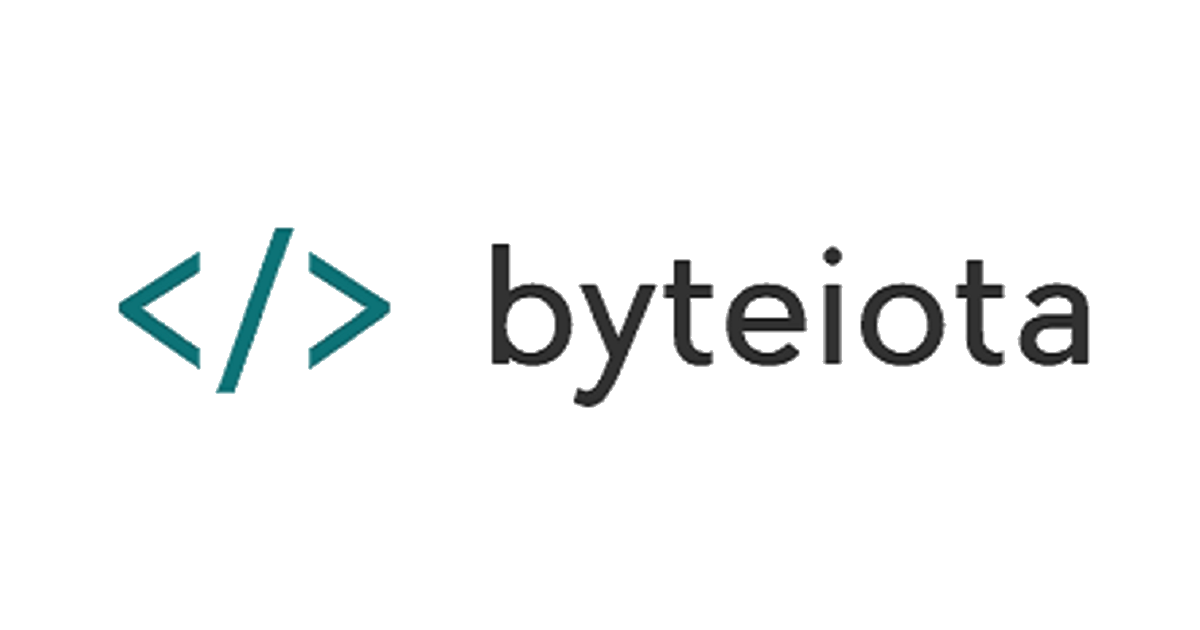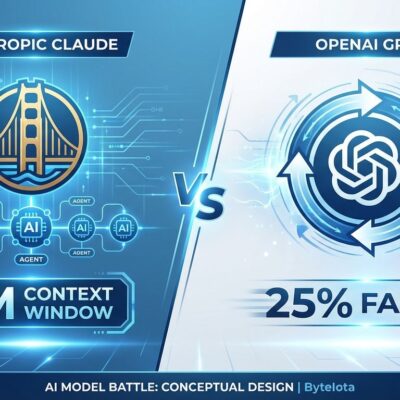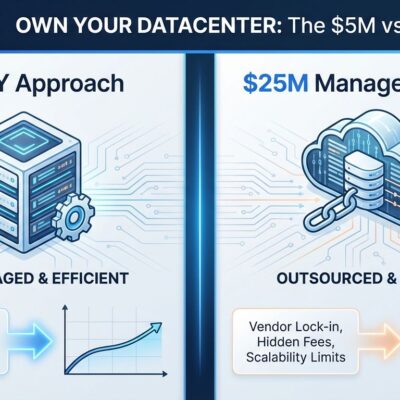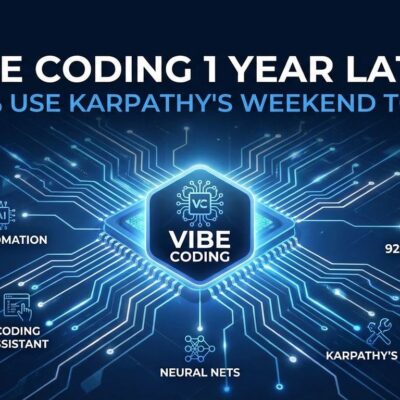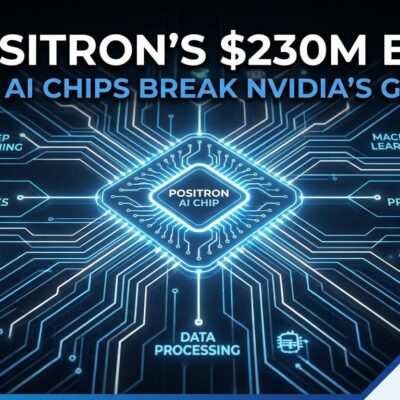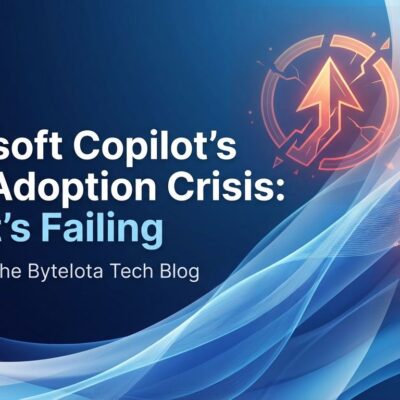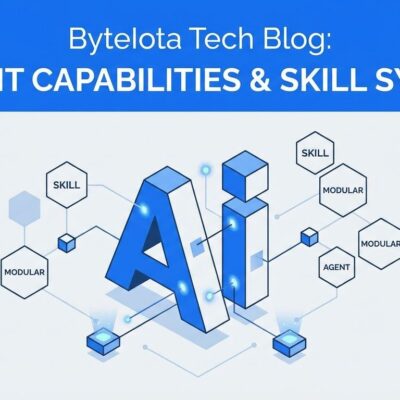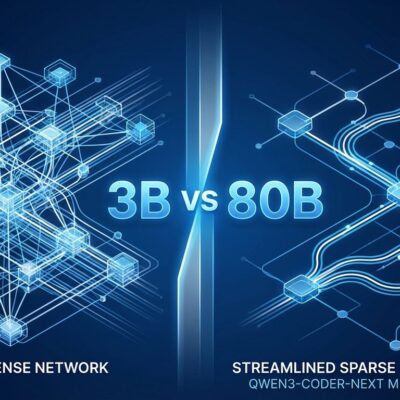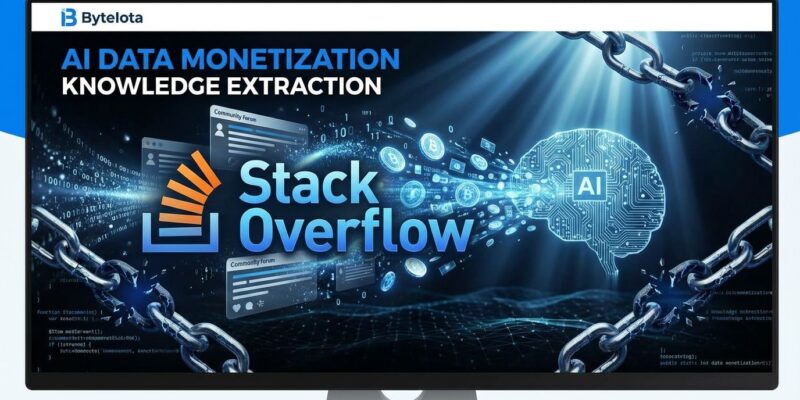
Stack Overflow announced on November 18, 2025, at Microsoft’s Ignite conference that it’s transforming from a community Q&A platform into an enterprise AI data provider. The company launched Stack Internal, an enterprise forum that exports knowledge with rich metadata to train AI models, and confirmed licensing deals with AI labs “very similar to the Reddit deals” (which generate over $200 million annually). This pivot comes as Stack Overflow faces an existential crisis: traffic collapsed 76% since ChatGPT launched in November 2022, with monthly questions falling to 2009 levels despite 84% of developers now using AI tools instead.
The Traffic Death Spiral That Forced the Pivot
Stack Overflow couldn’t compete with ChatGPT. Monthly questions plunged 76% from November 2022 to December 2024, hitting levels last seen when the platform launched in 2009. The platform lost 1 million daily visitors—12% of total traffic. Python tag activity alone collapsed 90% from 90,000 votes per month in 2020 to 10,000 in August 2025, the lowest since 2011.
The reason is obvious: 84% of developers now use AI tools, up from 76% in 2024. ChatGPT commands 82% adoption, GitHub Copilot 68%, Google Gemini 47%. Developers prefer AI because it’s fast and non-judgmental. Stack Overflow is slow and toxic—nasty comments, aggressive downvoting, and dismissive moderators drove users away long before AI delivered the killing blow.
Stack Overflow had to pivot or die. That doesn’t justify what they did next.
Selling Enterprise Knowledge to Train AI Models
Stack Internal, rebranded from Stack Overflow for Teams, is an enterprise Q&A platform that captures internal company knowledge and exports it to train AI models. Unlike raw text scraping, Stack Internal provides structured metadata: reliability scores, coherence assessments, author credentials, and comprehensive tagging. This metadata makes the data more valuable for AI training than simple question-answer pairs.
The platform integrates with the Model Context Protocol (MCP) for AI agent connectivity, enabling dynamic knowledge queries during inference. CTO Jody Bailey envisions AI agents writing Stack Overflow queries when they hit knowledge gaps—a feedback loop where AI trains on human knowledge, then generates new questions to fill its own gaps. The company also plans knowledge graphs to connect concepts automatically, eliminating redundant AI processing.
This isn’t just a product pivot. Stack Overflow is admitting that AI killed their platform and they must become AI plumbing to survive. Enterprises will pay to turn their internal knowledge into AI training data. Stack Overflow survives by selling the tools to build the AI that destroyed them. The irony is complete.
Stack Overflow Punishes Users for Protecting Their Work
When Stack Overflow announced its OpenAI partnership in 2024, users protested by editing or deleting their answers to prevent AI training. Stack Overflow responded by banning users en masse and reverting their edits within hours. Mastodon user @ben recounted editing his most successful answers to avoid “having my work stolen by OpenAI.” Within one hour, moderators suspended his account for seven days.
His protest message crystalizes the betrayal: “I did it for free for other people who did it for free for me. OpenAI never did anything for me for free.” Stack Overflow’s policy prevents deleting questions with accepted answers or high upvotes to “preserve community knowledge.” That knowledge is now being sold to closed-source commercial AI companies for undisclosed millions, and contributors who object are punished.
Related: Stop Forcing AI on Developers: Why Opt-Out Design Fails
There was no opt-in mechanism. No compensation. No consent. Just bans for trying to protect your own work. This crystallizes why developers are abandoning Stack Overflow—not just for better AI tools, but because the platform betrayed the community that built its value.
The Precedent: $200M to Platforms, $0 to Contributors
Stack Overflow CEO Prashanth Chandrasekar confirmed AI licensing deals “very similar to the Reddit deals.” Reddit signed a $60 million annual deal with Google and a $70 million deal with OpenAI—over $130 million annually from user-generated content. Contributors received $0. Stack Overflow is following the same playbook: monetize unpaid community labor without sharing revenue.
Historical context makes this worse. Reddit cofounder Alexis Ohanian revealed that Sam Altman asked Reddit to “aggressively scrape” the platform in 2015-2016, shortly after Altman helped Reddit raise $50 million and launched OpenAI as a nonprofit. Ohanian said he “felt in my bones” they should refuse but “lost that debate.” Now every user-generated content platform is signing AI training deals: Reddit, Stack Overflow, Twitter/X for xAI. The pattern is clear: build with community labor, monetize without sharing profits.
This marks the death of free knowledge platforms built on open-source ethos. The social contract was simple: your contributions benefit the community, knowledge stays open. That contract is dead. Platforms built on free contributions are now extracting value from those contributions for profit, with no compensation for the people who created the value.
Stop Contributing to Platforms That Sell Your Work
Developers have limited options. First, stop contributing to Stack Overflow entirely. This is passive protest, and it’s working—89% of developers are reportedly abandoning the platform in 2025, with 65,000+ in the 2024 survey actively seeking alternatives. New monthly questions are down 77% since ChatGPT launched.
Second, migrate to self-owned platforms. Personal blogs give you control and monetization rights. Discord and Slack communities avoid AI training risk by staying private. Decentralized networks like Mastodon distribute ownership and prevent corporate exploitation. The downside: lower reach and discoverability. The upside: you control your work.
Third, advocate for legislation requiring consent and compensation for AI training data. The current legal framework allows platforms to claim perpetual licenses on user content with no revenue sharing. That needs to change, but don’t hold your breath.
The trust paradox tells the story: 84% of developers use AI tools, but only 60% have positive sentiment—down from over 70% in 2023-2024. Just 33% trust AI accuracy, while 46% actively distrust it. Developers use AI because it’s fast and convenient, not because they trust it. They’re training the tools that compete with their own skills, using knowledge extracted from platforms they built for free.
Key Takeaways
- Stack Overflow pivoted to selling AI training data after traffic collapsed 76% since ChatGPT launched, with monthly questions falling to 2009 levels—the platform had to adapt or die
- Stack Internal monetizes both enterprise internal knowledge and public Q&A data through licensing deals “similar to Reddit” (over $200M annually), with zero compensation for the developers who created that knowledge
- When users protested the 2024 OpenAI partnership by editing their answers, Stack Overflow banned them en masse within hours—no opt-out, no consent, just punishment for protecting your own work
- The pattern is clear across user-generated content platforms: Reddit, Stack Overflow, Twitter/X all monetize unpaid community labor without revenue sharing, marking the death of free knowledge commons built on open-source ethos
- Stop contributing to platforms that will sell your work—84% of developers use AI tools trained on Stack Overflow data while the platform punishes contributors for objecting, making continued participation directly training your own competition
If you contribute to Stack Overflow today, you’re enriching corporations and training AI tools that compete with developer skills, not building community knowledge. The open-source ethos that made Stack Overflow valuable is dead. Platforms built on free contributions are now monetizing that labor for profit. Vote with your feet. Build on platforms you control, or accept that your unpaid work trains the AI that makes you less valuable.
